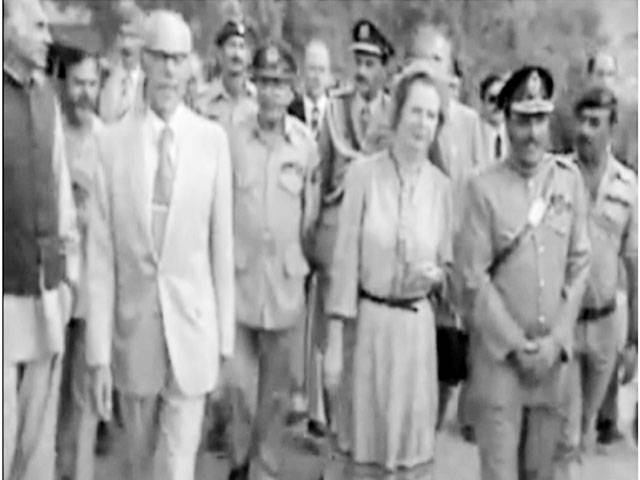"We must understand that democracy cannot work in a hot climate. To have democracy we must have a cold climate like Britain".
–General Ayub Khan (former dictator).
U.K Prime Minister Margaret Thatcher
and President Zia-ul-Haq visit to
Afghan border in October 1981.
Since early days, the political leadership of Pakistan failed to ingrain the culture of democracy in the country. Not delving into the debate of factors that harmed democracy in Pakistan, the fact is that dictatorships had left the country in a perilous position and the aftereffects of dictatorial policies are still jolting Pakistan and haunting the people. The most brutal of all dictatorships was that of General Zia-ul-Haq.
While kowtowing to America in a proxy war against the Soviet Union, the short-sighted dictator failed to calculate the attached costs of assisting and supporting the US in Afghanistan. He and his advisors never gave a thought to the spillover effects of Afghan war that would reach Pakistan.
To defeat “infidel communists” training camps were established on Pakistani soil to support “the moral equivalents of our founding fathers”, as President Ronald Reagan called the Mujahideen who met him in White House. As soon as the task of defeating the Soviet Union was achieved, the US pulled out of Afghanistan. However, one of the many things and ideas that were left untouched was the jihadi ideology.
When the US forces invaded Afghanistan in 2001, the ideology nurtured by the US and General Zia backfired. Pakistan, since then, is struggling to defeat militancy.






